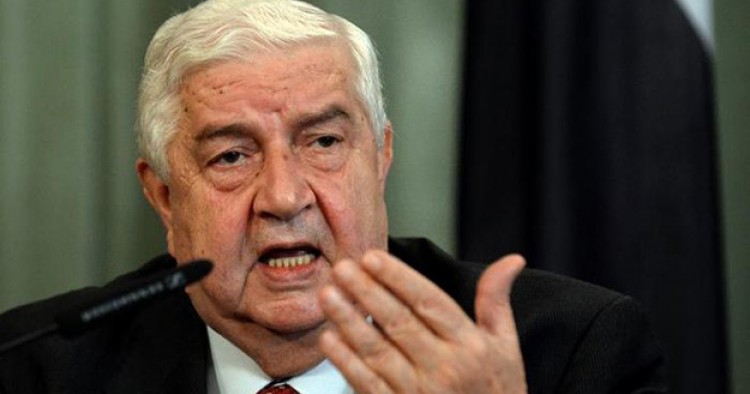This article was originally published by NPR.
With a major push from the U.S., a new Syrian peace conference opened Wednesday in Switzerland, the first such effort since the middle of 2012. It wasn't easy getting everyone there, and it will be harder still to achieve a breakthrough.
Here are a few key things to know about the conference:
1. What's the goal?
The aim is a broad-based transitional government that would have full power over state institutions, including the security forces. This body would seek to bring the civil war to an end and set the stage for a future government.
2. Who's taking part?
The Assad government was the first Syrian party to sign up. Extreme Islamist groups that are linked to al-Qaida and want to create an Islamic state won't be there. More moderate rebel factions, represented by the Syrian National Coalition, quarreled among themselves for weeks. Facing heavy pressure from the U.S. and other Western governments, they agreed last week to participate.
Secretary of State John Kerry (left) meets Russia's Foreign Minister Sergey Lavrov in Montreux, Switzerland, on Tuesday, a day before the start of a major Syrian peace conference that 40 countries will attend.
Some 40 countries will send delegations, with Russia backing President Bashar Assad's government and the United States a leading supporter of the rebels.
Iran, another key backer of Syria, received a last-minute invitation from U.N. Secretary-General Ban Ki-moon. But Iran objected to the "preconditions" and will not take part in the conference, which begins in Montreux and moves Friday to nearby Geneva.
3. What are the obstacles?
The rebels don't want Assad in the transitional government or any future government. But Assad and his supporters have said repeatedly that he's not stepping aside.
Given the bitterness of the ongoing fighting, prospects are dim that the rebels and the Assad government will be able to agree on a transitional government that would include representatives from both sides.
In addition, Assad feels his position is getting stronger. NPR's Deborah Amos, who has covered the Syrian uprising since it began nearly three years ago, offered this summary:
"A year ago, many Western officials and commentators were predicting the impending fall of Assad and an end to the fighting. Almost no one thinks that way now. Damascus is widely seen as having the upper hand on both the military and political fronts."
4. What happens if negotiators don't reach a deal?
While a major breakthrough is considered unlikely, the parties could find enough common ground to hold additional talks. They could, for example, allow aid to flow more freely to civilians.
"There is a fair amount of gloom that they can achieve anything," Salman Shaikh, director of the Brookings Doha Center, told Morning Edition. But, he added, there's "a hope and a prayer that the parties show up to continue the discussions in another set of conferences and meetings."
5. What's the state of the war?
As the war grinds on, Assad's forces have pushed the rebels back in some key areas, including outlying areas around the capital Damascus and in the north, in the country's largest city, Aleppo.
Another significant development on the battlefield has been the fierce fighting between more moderate rebel groups and the extremist factions linked to al-Qaida. This has effectively made Syria a three-way battle and further complicated efforts to end a war that has killed an estimated 130,000, driven millions from their homes and destabilized the broader region.
The Middle East Institute (MEI) is an independent, non-partisan, non-for-profit, educational organization. It does not engage in advocacy and its scholars’ opinions are their own. MEI welcomes financial donations, but retains sole editorial control over its work and its publications reflect only the authors’ views. For a listing of MEI donors, please click here.












